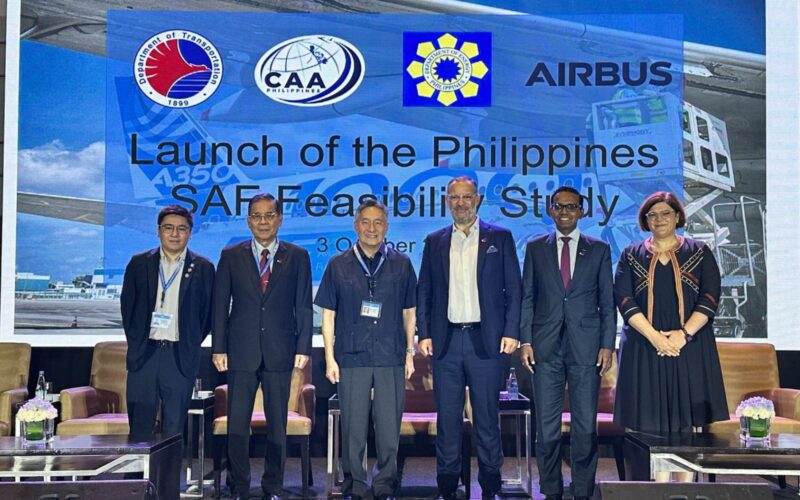The Philippine government and Airbus have entered into a partnership to explore the feasibility of producing Sustainable Aviation Fuel (SAF) in the country.
The collaborative feasibility study, which was announced at the 2024 Aviation Summit in Manila, will be based on the current International Civil Aviation Organization (ICAO) ACT-SAF template.
The study will include the analysis of macroeconomic data specific to the Philippines, evaluation of SAF feedstocks and production pathways, assessing relevant implementation support, financing, and policies, as well as drafting an action plan.
As part of the study, the Philippines established an SAF Committee under the Department of Energy-led National Biofuels Board which oversees the development of the country’s SAF roadmap.
As a member of the ICAO, the Philippines is committed to achieving the industry’s net zero carbon emission target by 2050.
In order to reach this goal, the country will rely on a basket of measures: fleet renewal, disruptive technologies, operations improvement, SAF and carbon offsetting.
During the 2024 Singapore Airshow, Airbus President of Asia Pacific Anand Stanley told AeroTime that airlines in the APAC region are committed to using 5-10% SAF by 2030. Anand also said that each country in the region has a unique wealth of resources that can be translated to SAF, citing the Philippines’ huge production of cooking oil as an example.
The Philippines’ Department of Transportation Undersecretary for Aviation and Airports Roberto Lim said the study will help develop relevant policies, regulations, and programs to advance economically viable SAF production in the country.
“On behalf of our partner agencies CAAP (Civil Aviation Authority of the Philippines), DOE (Department of Energy), DOST (Department of Science and Technology), and the other NBB (National Biofuels Board) SAF Committee members, we thank our private sector partners for participating to jumpstart the foundations of our SAF industry,” Lim said.
As air passenger traffic in Southeast Asia is expected to triple in the coming 20 years, Airbus is bolstering its sustainable efforts in the region.
In September 2024, the European plane manufacturer announced that it had entered a Memorandum of Understanding (MoU) with AirAsia to explore decentralized production of SAF using alternative feedstock and technologies in Southeast Asia.
Southeast Asia has lagged behind Europe and North America in terms of sustainability efforts and government mandates regarding the use of SAF.
However, Boeing’s recent market outlook on the region predicted that sustainable aviation efforts are expected to strengthen. Nearly 1,200 new, more fuel-efficient airplanes will replace aging jets in the region over the next 20 years. It is also foreseen that as global aviation aims to achieve net zero by 2050, the Southeast Asian region’s available bio-based feedstocks can supply approximately 12% of global SAF demand.

